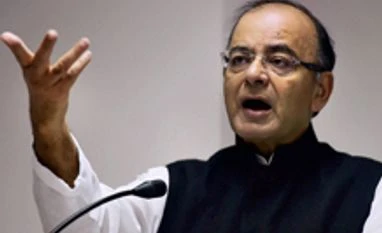From laws to contain circulation of black money to a new bankruptcy code that will make it easier for entrepreneurs to exit unviable businesses— the Union Budget has proposed a series of wide-ranging legislative changes. Here is a snapshot of the nine laws and their impact:
Bankruptcy code
The proposed legislation is going to make it easier for corporates and entrepreneurs to exit unviable ventures. The code will replace the Sick Industrial companies Act (SICA) as well as the Board for Industrial and Finance reconstruction (BIFR) Act.
Comprehensive law to deal with black money parked abroad
The proposed law provides for prosecution and rigorous imprisonment up to 10 years for those concealing income and assets, and evading tax on foreign assets. It also provides for prosecution of those not filing returns on, or filing returns with inadequate disclosure of foreign assets. The owner or beneficiary of foreign assets will have to mandatorily file returns, even if there is no taxable income. Those abetting offenders — whether individuals, entities, banks or financial institutions — will be liable for prosecution and a penalty.
Benami Transactions (Prohibition) Bill
More From This Section
The new legislation will enable confiscation of benami properties and provide for prosecution. The move is aimed at checking circulation of black money in the domestic economy. Income Tax act too is proposed to be amended to prohibit acceptance or payment of an advance of Rs. 20,000 or more in cash for purchase of immovable property.
Public Contracts (resolution of disputes) Bill
The new law is expected to streamline the process for resolving disputes arising in public contracts. A quick resolution of disputes is expected to ease the cash flow stress of companies involved in public contracts.
India Financial Code
As suggested by the Financial Sector Legislative Reforms Commission (FSLRC), India Financial Code lays out clear objectives for financial regulations. Under the proposed legislation, a unified financial authority (UFA) will be constituted as a regulator. It proposes to set up a financial redress agency (FRA) for resolving consumer complaints.
Regulatory reform Bill
It is expected to bring about a cogency of approach across various sectors of infrastructure. The move is seen to be creating an enabling environment for smooth roll out of Public Private Partnership (PPP) projects. The proposed law is expected to bring about consistency of regulators entrusted with tariff decisions in various sectors.
Procurement law
Aimed at containing malfeasance in public procurement. A similar Public Procurement Bill, 2012 was introduced in the 15 th Lok Sabha. The bill had advocated open competitive bidding as the preferred method for procurement and specified the conditions under which procurement methods could be used and the procedure to be followed.
Amendment to RBI Act to help constitute a Monetary Policy Committee
The committee will guide the central bank’s policy stance and help in inflation targeting. As per monetary policy framework agreement signed between the finance ministry and the Reserve Bank, the Committee will seek to keep Consumer Price Index-based inflation below six per cent by January 2016 and four per cent from 2016-17, with a band of plus/minus two per cent. The move is seen as an attempt to bring better coordination between the ministry and the central bank.
Public Debt Management Agency
The new agency thus created will manage both external and domestic debt.
)